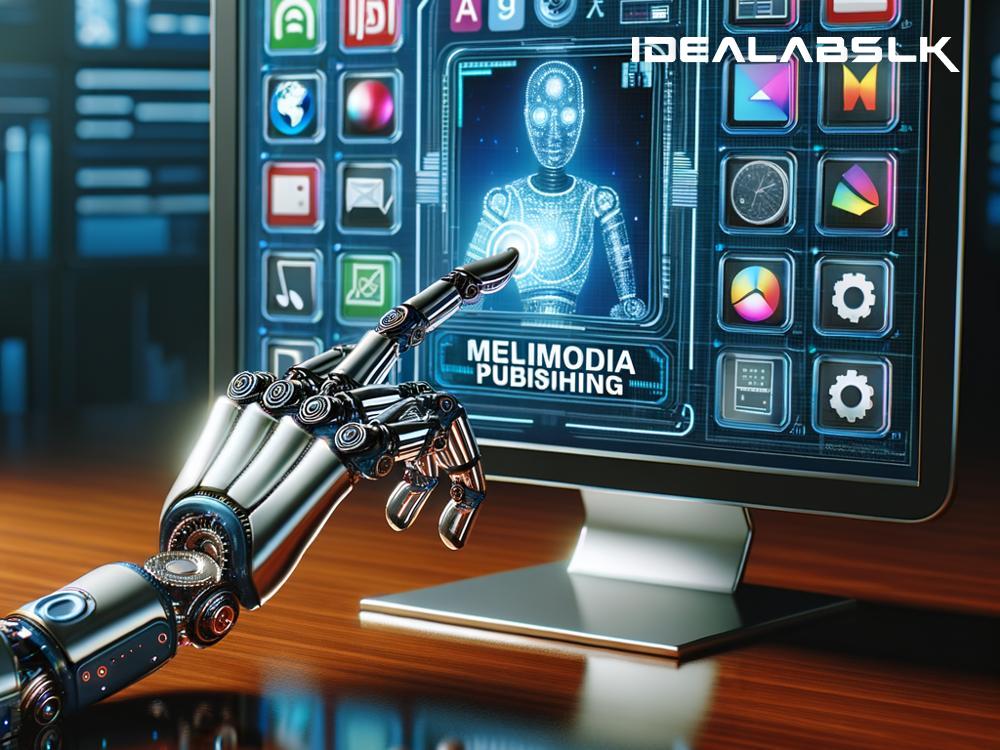The Future of AI in Digital Publishing Platforms
The future of digital publishing platforms is getting a big boost from advancements in artificial intelligence (AI). This isn't about robots taking over the world; it's about smart software that can do amazing things to help writers, publishers, and readers in ways we're just beginning to explore. As we journey into this future, it's worth looking at what AI can bring to the digital publishing table, making content smarter, more accessible, and even more engaging.
Making Creation Easier
Imagine being stuck for words or not knowing how to start your next article or story. AI comes to the rescue here. Some platforms are already using AI to suggest ideas, draft outlines, or even generate entire pieces based on a few prompts. This doesn't mean AI is replacing human writers but think of it more as having a supportive buddy who's there to give you a nudge when you hit a writer's block. This buddy also happens to be great at grammar and style, making sure your writing is polished and professional.
Personalization at Its Best
One size doesn't fit all, especially when it comes to reading. AI is making it possible to personalize content like never before. This means articles, stories, and educational material can be adapted to suit your reading level, interests, and even the time you have available. Imagine starting a story on your lunch break and having it adjust to give you a satisfying ending right as your break ends. That's the kind of personal touch AI can bring to digital publishing.
Smarter Searches and Recommendations
Remember the last time you tried to find something specific online and ended up going down a rabbit hole? AI is working to make searches on digital publishing platforms much more intuitive, helping you find exactly what you need without the detour. Beyond searches, AI-driven recommendations are getting smarter, too. Based on your reading habits, AI can suggest books, articles, and other content that you're likely to enjoy, often introducing you to amazing finds you wouldn't have discovered otherwise.
Accessibility for All
AI is playing a crucial role in making content more accessible to everyone, including those with disabilities. From advanced text-to-speech engines that can read articles aloud in a surprisingly human way to AI that can translate content into different languages or adapt it for readers with dyslexia, the focus is on ensuring everyone has access to the wealth of knowledge and entertainment available through digital platforms.
Interactive and Engaging Content
Digital publishing isn't just about putting words on a screen; it's about creating engaging experiences. AI is at the forefront of this, enabling interactive stories that change based on your choices, similar to a choose-your-own-adventure book, but much more sophisticated. Educational content can also benefit from AI, with personalized learning paths that adapt to the pace and style of the individual learner, making education more effective and enjoyable.
The Challenges Ahead
While the future looks bright, there are challenges to tackle. Concerns about privacy, copyright, and ensuring AI-generated content remains ethical and truthful are at the forefront. There's also the need to maintain a balance between leveraging AI and keeping the human touch that adds warmth and depth to content. Navigating these challenges will require careful thought and collaboration among tech developers, content creators, and users.
Embracing the Future
As we look toward this future, it's clear that AI has the potential to transform digital publishing in profound ways. From making the content creation process easier and more efficient to personalizing the reading experience and making knowledge more accessible, AI is opening doors to exciting possibilities.
What's crucial is ensuring that these advancements benefit all stakeholders—writers, publishers, and readers—while addressing valid concerns about privacy, ethics, and the preservation of human creativity. By embracing AI as a tool that augments the human element rather than replaces it, digital publishing can move into a future where content is more dynamic, inclusive, and engaging than ever before.
The journey into the future of AI in digital publishing platforms is just beginning. As we continue to explore and understand the full capabilities of AI, one thing is clear: the possibilities are as vast as our imagination. By harnessing these technologies responsibly, we're not just reshaping the landscape of digital publishing; we're also enhancing our collective ability to learn, tell stories, and connect with each other in increasingly meaningful ways.

